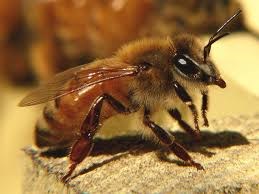Who would have thought the humble honey bee would become the sounding bell to raise public concern over a growing environmental effort.
The concern revolves around the apparent impact neonicotinoids have on bee populations.
The impact on bees is seen as particularly impactful environmentally because bees are nature’s pollinators, making them an important part of the life cycle of many plants, including food sources such as fruits.
Such concerns have been fueled by date such as 58 per cent of the bee colonies in Ontario did not survive last winter.
While evidence is far from conclusive in pinning the losses on the pesticide it is being pointed too as a likely contributor.
And the pesticide issue is one we could impact with moratoriums and bans, whereas a cold winter’s impact is beyond our control.
In August The Globe and Mail reported a poll showing 87 per cent of Ontarians surveyed were concerned about the threat neonicotinoids pose to insects and wildlife, and 92 per cent want the government to protect pollinators.
“I’ve been doing environmental work since 1984 and I’ve never seen this level of public concern about an issue,” said Gideon Forman, executive director of Canadian Association of Physicians for the Environment, which paid for two-thirds of the poll, in the G&M story.
Among the survey’s respondents, 77 per cent said the government should place a two-year moratorium on neonics.
For those unaware, a separate G&M story detailed the concerns;
“Beekeepers and a growing body of scientific research say the neonicotinoid class of pesticide that has become widely used in the past decade is contributing to the decline in populations of bees and other pollinators. They say the chemicals designed to protect crops against worms and other pests are weakening beneficial insects and making them more vulnerable to viruses, parasites and loss of food supply.
“Neonicotinoids, known as neonics, are applied by the seed companies on corn, canola and some soybeans. They are also used by vegetable farmers and growers of ornamental flowers.
“The pesticide is systemic, which means it is present throughout the plants, including the nectar and pollen eaten by honey bees and other insect pollinators that are responsible for a third of the food humans consume.”
While I am an ardent proponent of progress in science, promoting those things which expand the possibilities of agriculture, in particular the field of genetically modified crops, there are situations where extra diligence not only makes sense, but is simply required.
Neonics is one of the times we need to slam on the brakes and take a long extra look at the potential to negatively impact the natural way of things.
To impact pollinators, given their importance to food production would be folly, and we need to ensure we don’t go down that path.
Calvin Daniels is Assistant Editor with Yorkton This Week.




